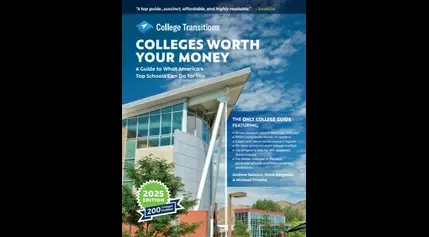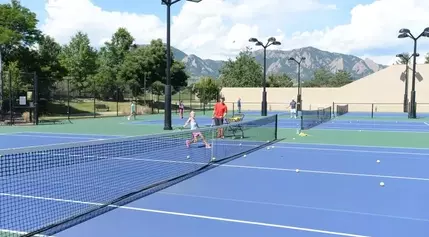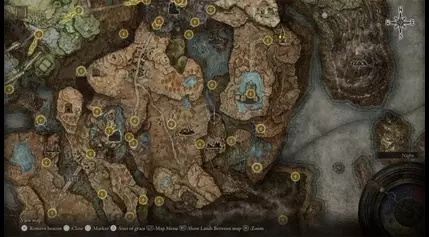CU, City of Boulder team up to build tennis courts
In a move that promises to reshape the athletic landscape of Boulder, the city has announced a strategic partnership with CU Boulder's athletic department to construct a state-of-the-art indoor tennis facility and expand outdoor court options. Concurrently, the community is bidding farewell to a local nonprofit that has played a vital role in supporting the city's homeless population, as it transitions its services to a new organization. These developments, while distinct, reflect Boulder's commitment to enhancing recreational opportunities and fostering a more inclusive community.
Elevating the Tennis Experience in Boulder
The City of Boulder's collaboration with CU Boulder's athletic department is set to bring a significant upgrade to the city's tennis infrastructure. The plan includes the construction of an indoor tennis facility, complemented by up to eight outdoor courts, at the East Boulder Recreation Center. This investment comes in response to the loss of 15 courts due to the redevelopment of the Millennium Harvest Hotel, with more closures anticipated as the city prepares to build a dam and detention pond on land owned by the university.The new indoor facility will provide a year-round hub for tennis enthusiasts, offering a solution to the seasonal limitations of outdoor courts. The number of indoor courts will be determined by a comprehensive site analysis, ensuring the facility is tailored to the community's needs. In the interim, CU Boulder has pledged to make three temporary courts available to the public at Balch Fieldhouse, where the university's tennis team will also practice.The project is expected to be completed by the summer of 2026, marking a significant milestone in Boulder's efforts to enhance its recreational offerings. The introduction of an online reservation system will further streamline the user experience, making it easier for the community to access and enjoy the new facilities.Fostering Inclusive Recreational Opportunities
The partnership between the City of Boulder and CU Boulder's athletic department underscores the city's commitment to providing accessible and inclusive recreational opportunities. By investing in state-of-the-art tennis facilities, Boulder is demonstrating its dedication to supporting a diverse range of athletic pursuits and catering to the needs of its active community.The expansion of outdoor courts and the creation of an indoor facility will not only cater to the existing tennis enthusiasts but also encourage newcomers to the sport. This investment has the potential to inspire a new generation of players, fostering a vibrant and inclusive tennis culture within the city.Furthermore, the temporary courts at Balch Fieldhouse will serve as a bridge, ensuring that the community's access to tennis facilities remains uninterrupted during the construction phase. This thoughtful approach reflects Boulder's dedication to maintaining a seamless recreational experience for its residents.Navigating the Changing Landscape: Addressing the Loss of Tennis Courts
The announcement of the new tennis facilities comes in the wake of a significant loss of courts in the city. The redevelopment of the Millennium Harvest Hotel resulted in the closure of 15 courts, and further closures are anticipated as the city prepares to build a dam and detention pond on land owned by the university.This shift in the city's landscape has presented both challenges and opportunities. The loss of courts has undoubtedly impacted the tennis community, but the city's proactive response to address this issue demonstrates its commitment to maintaining and enhancing recreational options.The partnership with CU Boulder's athletic department represents a strategic solution that not only replaces the lost courts but also expands the overall tennis infrastructure in the city. By leveraging the resources and expertise of the university, Boulder is poised to create a world-class tennis facility that will serve the community for years to come.Transitioning Support Services for the Homeless Community
Alongside the developments in the city's tennis landscape, Boulder is also witnessing a significant transition within its nonprofit sector. Feet Forward, a nonprofit organization that has been serving the city's homeless community, will be dissolving by the end of the year.Feet Forward, founded by a formerly unhoused individual, has played a vital role in providing peer support and outreach services to those in need. In a move to ensure the continuity of these essential services, the organization will be transferring its operations to Haven Ridge, formerly known as Mother House, on November 8th.This transition reflects the ongoing efforts to address the complex challenges faced by the homeless population in Boulder. By aligning with Haven Ridge, Feet Forward's services will continue to be accessible to those who rely on them, ensuring that the community's most vulnerable members receive the support they require.The dissolution of Feet Forward is a bittersweet moment, as the organization's dedicated work has made a tangible difference in the lives of many. However, the transfer of services to Haven Ridge signifies a commitment to maintaining a safety net for the homeless community, even as the landscape of support services evolves.Embracing Data-Driven Insights: The Relaunch of TRENDS
In a separate development, the Community Foundation Boulder County has relaunched TRENDS, its long-standing data-tracking project, as an online dashboard. Previously, TRENDS was a biannual published report that provided insights into key social indicators, such as population, income, housing costs, and health.The transition to an online platform marks a significant shift in the way the community can access and engage with this valuable data. The TRENDS dashboard, available at commfound.org/our-work/trends, offers a more dynamic and user-friendly interface, allowing residents, policymakers, and stakeholders to explore the latest trends and patterns shaping Boulder's social landscape.This relaunch underscores the importance of data-driven decision-making in addressing the evolving needs of the community. By making this information readily accessible, the Community Foundation Boulder County is empowering individuals and organizations to better understand the challenges and opportunities facing the city, ultimately informing more effective and targeted solutions.The TRENDS dashboard represents a step forward in Boulder's commitment to transparency and evidence-based policymaking, ensuring that the community's progress and challenges are tracked and communicated in a clear and accessible manner.Embracing Diversity and Inclusion: Boulder County's Native American/American Indian Relations Manager
In a move to strengthen its relationships with tribal governments and nations, as well as individuals who identify as American Indian, Alaska Native, and Native Hawaiian, Boulder County has announced the hiring of a Native American/American Indian Relations Manager.This full-time position, with a listed salary range of ,000 to 2,500, reflects the county's dedication to fostering meaningful connections and understanding with the indigenous communities within its borders. The successful candidate will be responsible for cultivating these relationships, ensuring that the perspectives and needs of these communities are represented and addressed in the county's policies and initiatives.The creation of this specialized role underscores Boulder County's commitment to diversity, equity, and inclusion. By prioritizing the engagement and representation of Native American and indigenous populations, the county is taking a proactive step towards building a more inclusive and equitable community.This initiative aligns with the broader efforts to acknowledge and honor the historical and ongoing contributions of Native American and indigenous peoples, while also addressing the unique challenges they face. The Native American/American Indian Relations Manager will play a crucial role in bridging the gap between the county and these communities, fostering a deeper understanding and collaboration.




















